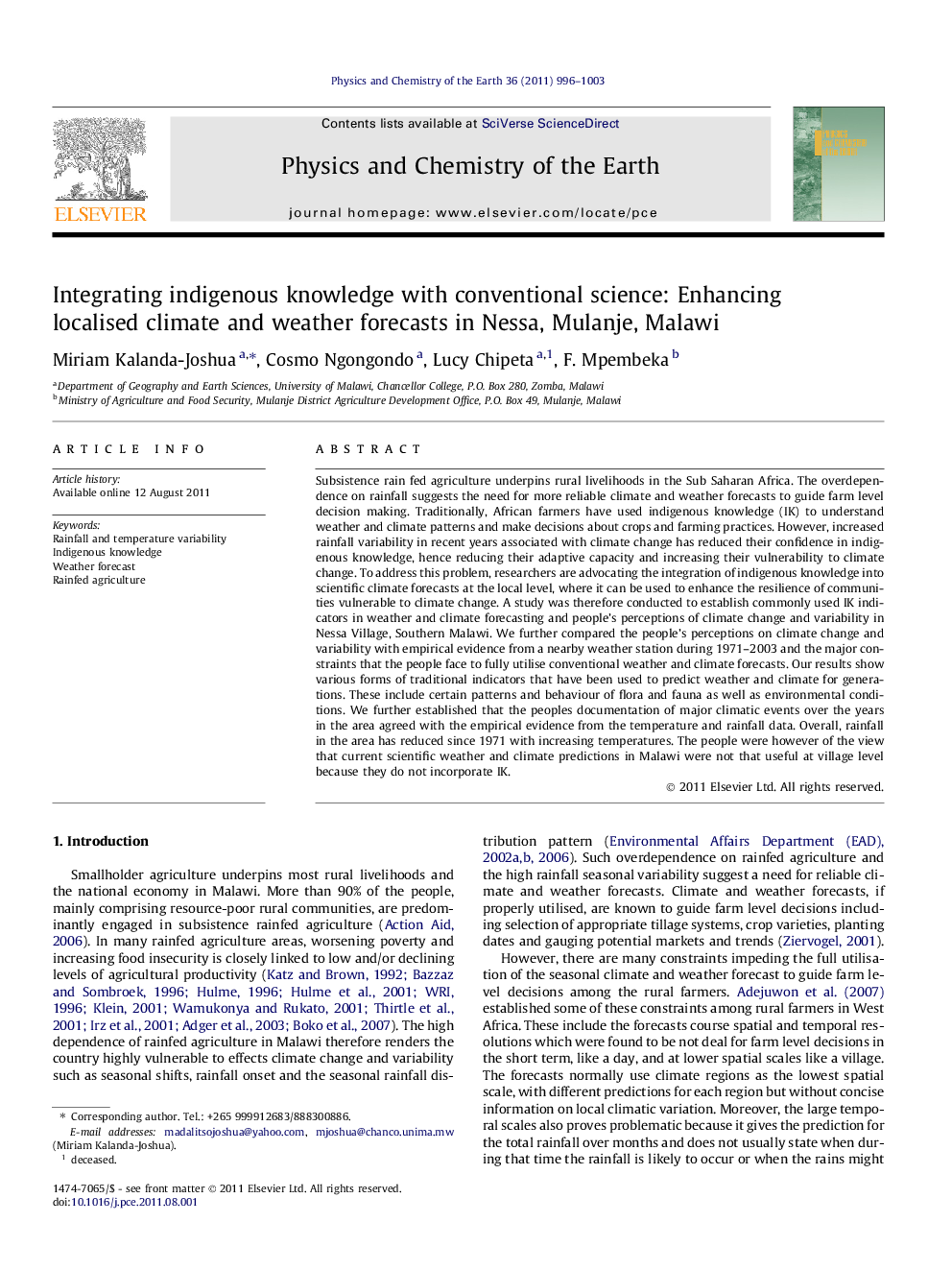| کد مقاله | کد نشریه | سال انتشار | مقاله انگلیسی | نسخه تمام متن |
|---|---|---|---|---|
| 4721317 | 1639374 | 2011 | 8 صفحه PDF | دانلود رایگان |

Subsistence rain fed agriculture underpins rural livelihoods in the Sub Saharan Africa. The overdependence on rainfall suggests the need for more reliable climate and weather forecasts to guide farm level decision making. Traditionally, African farmers have used indigenous knowledge (IK) to understand weather and climate patterns and make decisions about crops and farming practices. However, increased rainfall variability in recent years associated with climate change has reduced their confidence in indigenous knowledge, hence reducing their adaptive capacity and increasing their vulnerability to climate change. To address this problem, researchers are advocating the integration of indigenous knowledge into scientific climate forecasts at the local level, where it can be used to enhance the resilience of communities vulnerable to climate change. A study was therefore conducted to establish commonly used IK indicators in weather and climate forecasting and people’s perceptions of climate change and variability in Nessa Village, Southern Malawi. We further compared the people’s perceptions on climate change and variability with empirical evidence from a nearby weather station during 1971–2003 and the major constraints that the people face to fully utilise conventional weather and climate forecasts. Our results show various forms of traditional indicators that have been used to predict weather and climate for generations. These include certain patterns and behaviour of flora and fauna as well as environmental conditions. We further established that the peoples documentation of major climatic events over the years in the area agreed with the empirical evidence from the temperature and rainfall data. Overall, rainfall in the area has reduced since 1971 with increasing temperatures. The people were however of the view that current scientific weather and climate predictions in Malawi were not that useful at village level because they do not incorporate IK.
► Integration of indigenous knowledge and scientific climate forecasts investigated.
► Villagers perceptions on climate change and variability validated with empirical evidence.
► IK indicators perceivably no longer reliable due to high climate variability.
► Scientific nature of climate forecasts major constraint for making farm decisions.
► Closer partnership between IK and climate information providers vital.
Journal: Physics and Chemistry of the Earth, Parts A/B/C - Volume 36, Issues 14–15, 2011, Pages 996–1003